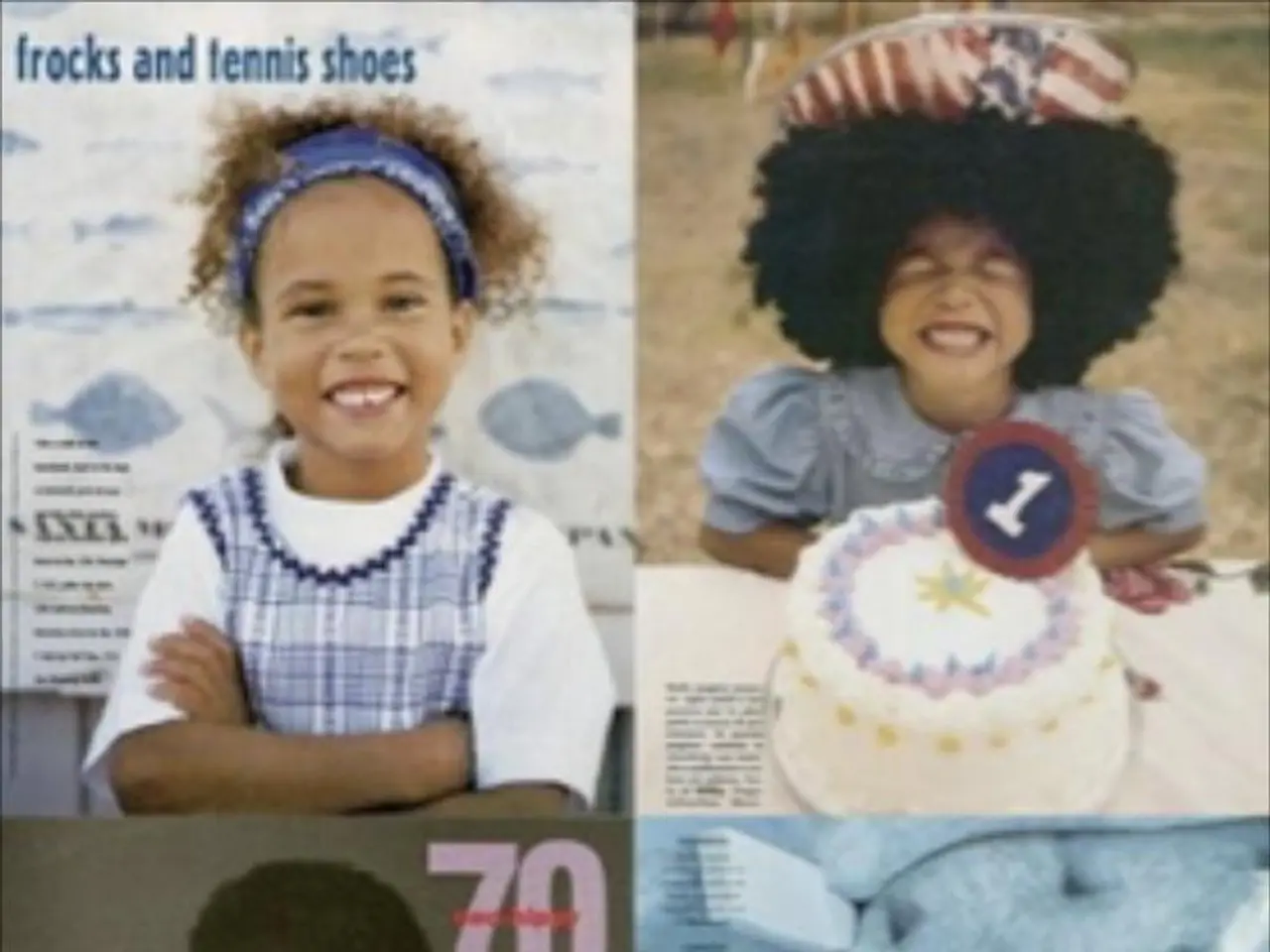Enhancing Social and Emotional Growth through courtesy: Aiding children to flourish socially and emotionally
In today's digital age, incivility and bullying have become alarmingly prevalent in various settings, including schools, workplaces, and online platforms. As parents, it's essential to equip our children with the skills to handle teasing, resist peer pressure, and avoid becoming bullies.
Firstly, open communication about bullying and teasing is key. Encourage your children to share their experiences and feelings, teaching them how to recognize bullying behaviours. Model respectful and compassionate behaviour, showing them how to handle conflicts with conviction and empathy without resorting to incivility.
Coaching children to resist peer pressure is another crucial strategy. Ask reflective questions that help them weigh the pros and cons of social situations, promoting independent decision-making. Encourage empathy and kindness, including involving them in service activities that nurture a sense of responsibility and respect for others.
Supporting social-emotional learning (SEL) programs in schools is equally important. Reinforce these lessons at home for consistent messaging about respect and conflict resolution. Monitor and guide online activity to prevent cyberbullying exposure and promote digital citizenship.
When bullying is severe, intervene appropriately while also allowing children to develop coping skills and emotional strength to handle minor social challenges. Working together with schools and using community resources like counseling services can strengthen support, creating a consistent culture that prioritizes civility and counters rising incivility and bullying.
Understanding the spectrum of social harm, from incivility to bullying, is important for parents to identify serious issues. Incivility might look like rudeness, gossip, teasing, or ignoring someone. Social cruelty includes exclusion, sarcasm, ridicule, or humiliating behaviours. If the harm is persistent and traumatic, professional support is warranted.
Empathy is the linchpin for resilience, belonging, and inclusion, especially for kids who feel marginalized. SEL programs such as Second Step, RULER, and Caring School Community teach kids skills that reduce bullying and promote civility, including naming and managing emotions, empathy, perspective-taking, clear communication, conflict resolution, responsible decision-making, and making decisions without aggression.
Remember, when kids mess up, they need guidance more than judgment, and apologies should be seen as a sign of strength. Approach situations with curiosity, validation, and a gentle challenge, asking open-ended questions to gather details and monitor for red flags.
Parents want their children to be respectful, kind, thoughtful, and socially intelligent. By fostering open communication, modeling respectful behaviour, and supporting SEL both at home and in partnership with schools, we can help our children navigate social complexities safely and respectfully.








